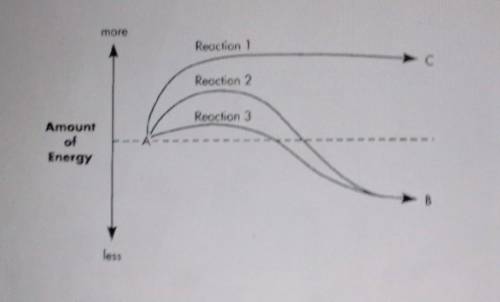Refer to the graph above. Reaction 2*
is the same as Reaction 1, but faster.
requires m...

Biology, 23.09.2020 02:01 sparky1234
Refer to the graph above. Reaction 2*
is the same as Reaction 1, but faster.
requires more activation energy than Reaction 3
probably occurred in the presence of a catalyst
creates the same products as reaction 1.


Answers: 1


Other questions on the subject: Biology

Biology, 21.06.2019 19:00, ella3714
The hypothesis of continental drift states that earth's continents, which are located on tectonic plates, move relative to each other. which of the following is true of the movement of the tectonic plates? a. tectonic plates only move once every million years. b. they move at a rate of approximately 5 centimeters per year. c. tectonic plates never move, only the continents located on them do. d. their movements are very rapid and occur at random times.
Answers: 1

Biology, 22.06.2019 00:10, haileysolis5
Which way do the nitrogenous bases in dna pair up? a. a and g; t and c b. a and c; t and g c. a and t; g and c d. a and a; t and t; g and g; c and c
Answers: 2

Biology, 22.06.2019 03:00, ladnerhailey16
Lola needs to sign 6 invitations. using stopwatch that measures time to tenths of a second, it takes lola 5.3 seconds to sign her full name. going by the accuracy of the stopwatch, which is the most accurate determination for the number of minutes lola needs to sign all 96 invitations
Answers: 1

Biology, 22.06.2019 07:20, boo8181
Agroup of plant cells was exposed to radiation, which damaged the chloroplasts and caused them to lose function. if the mitochondria were unharmed, what would happen to the overall function of the plant cells? a. the cells would not be able to make food, but would be able to release energy from biomolecules. b. the cells would not be able to replicate dna, but would be able to break down waste. c. the cells would not be able to break down waste, but would be able to replicate dna. d. the cells would not be able to release energy from biomolecules, but would be able to make food.
Answers: 1
You know the right answer?
Questions in other subjects:












